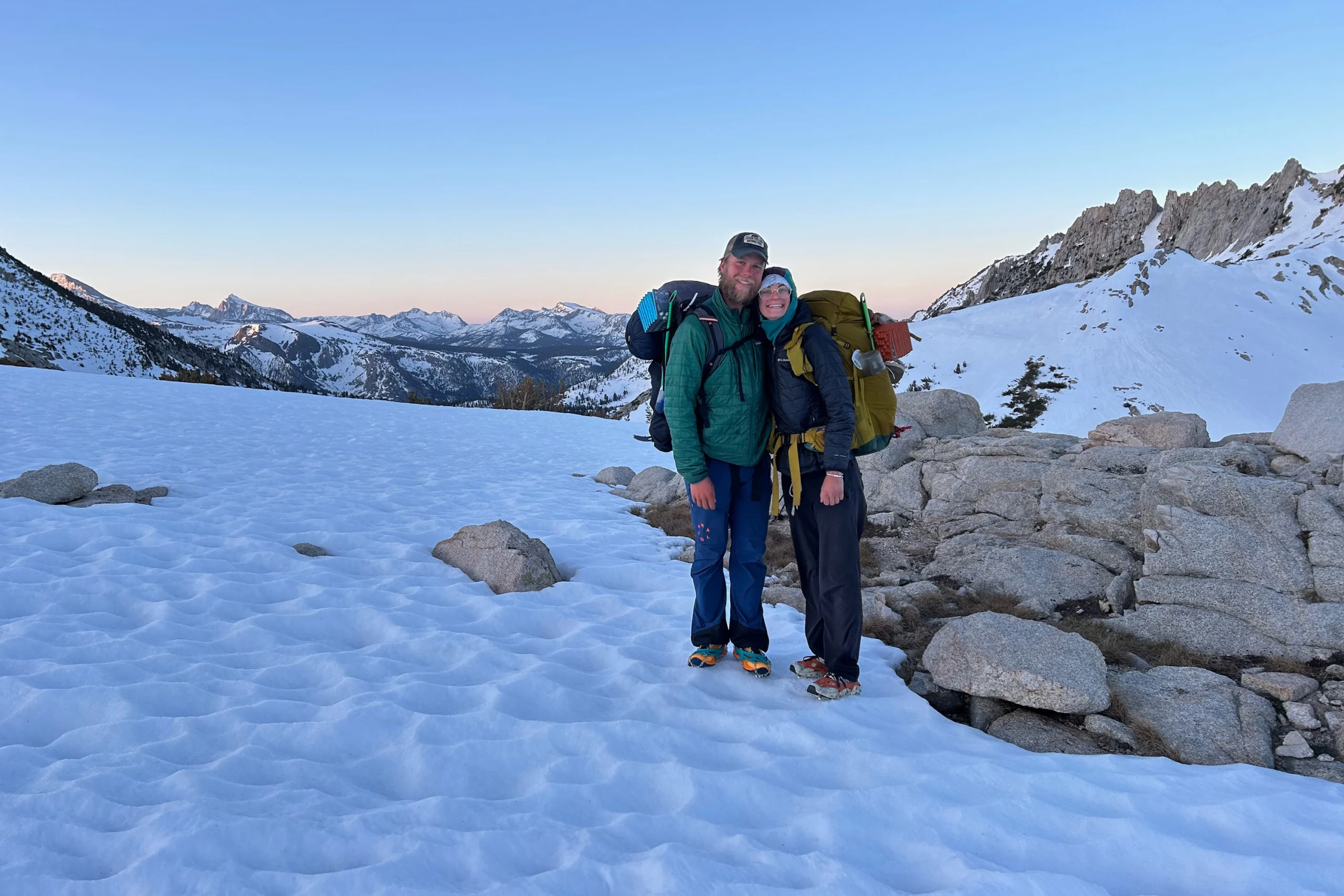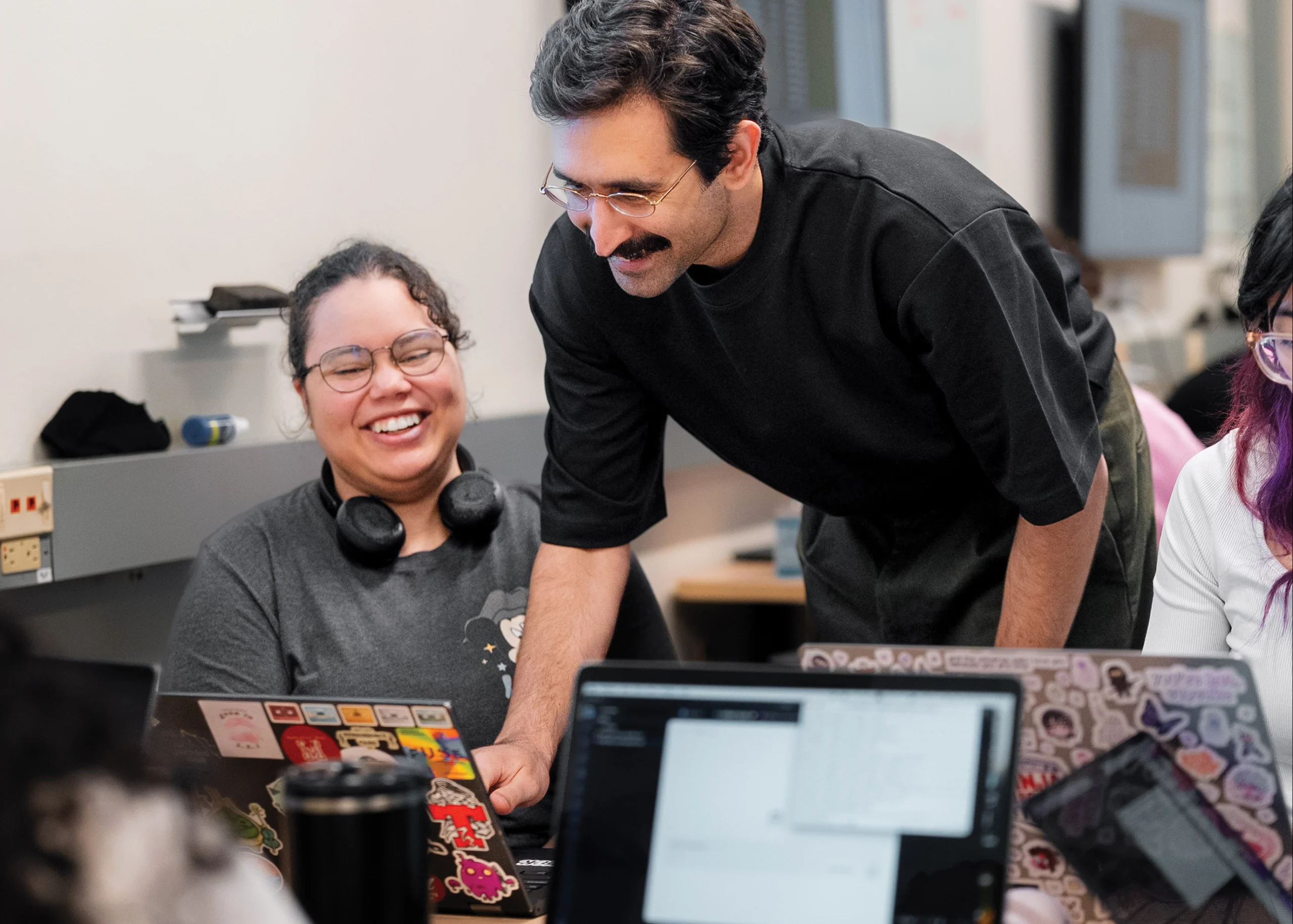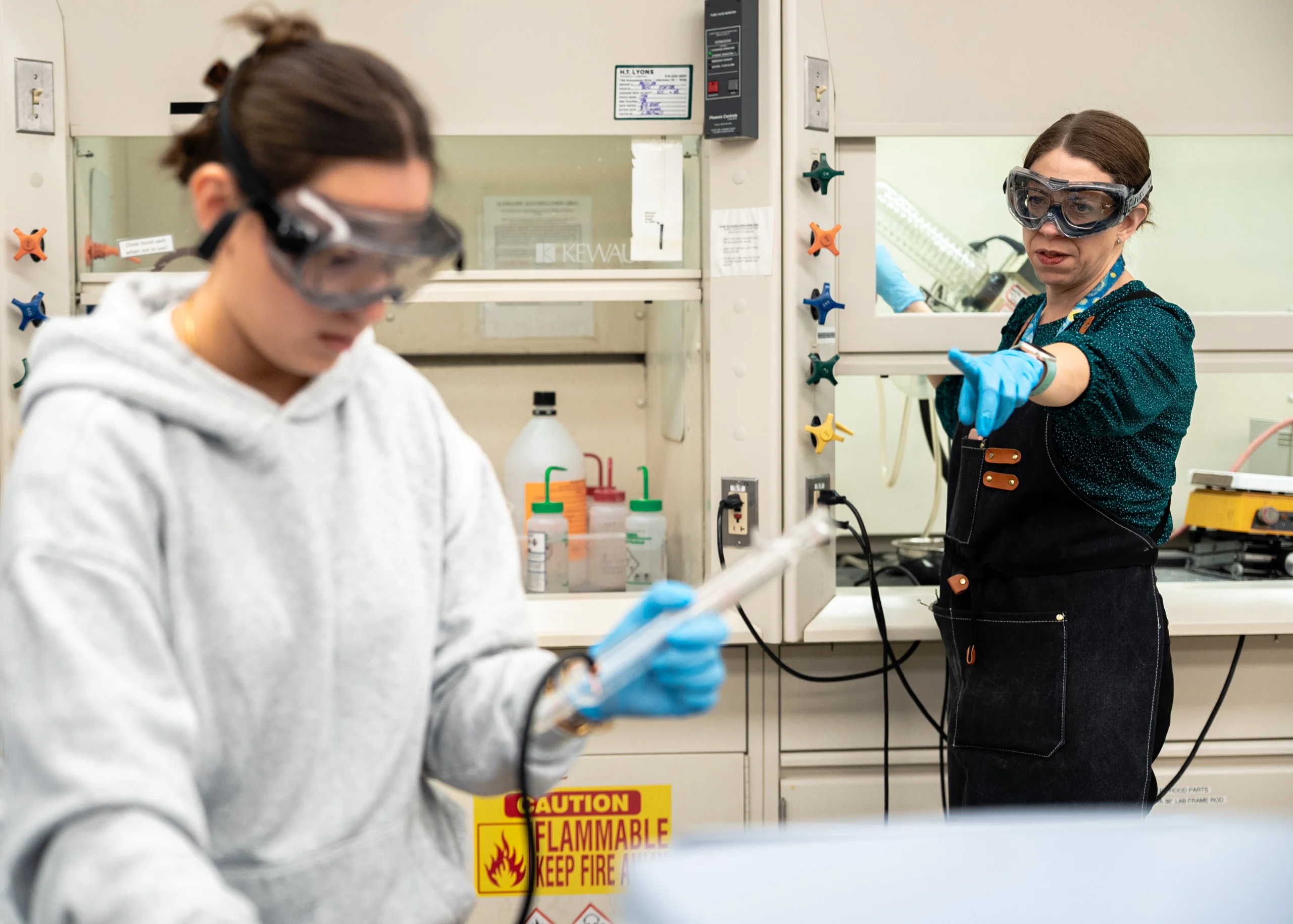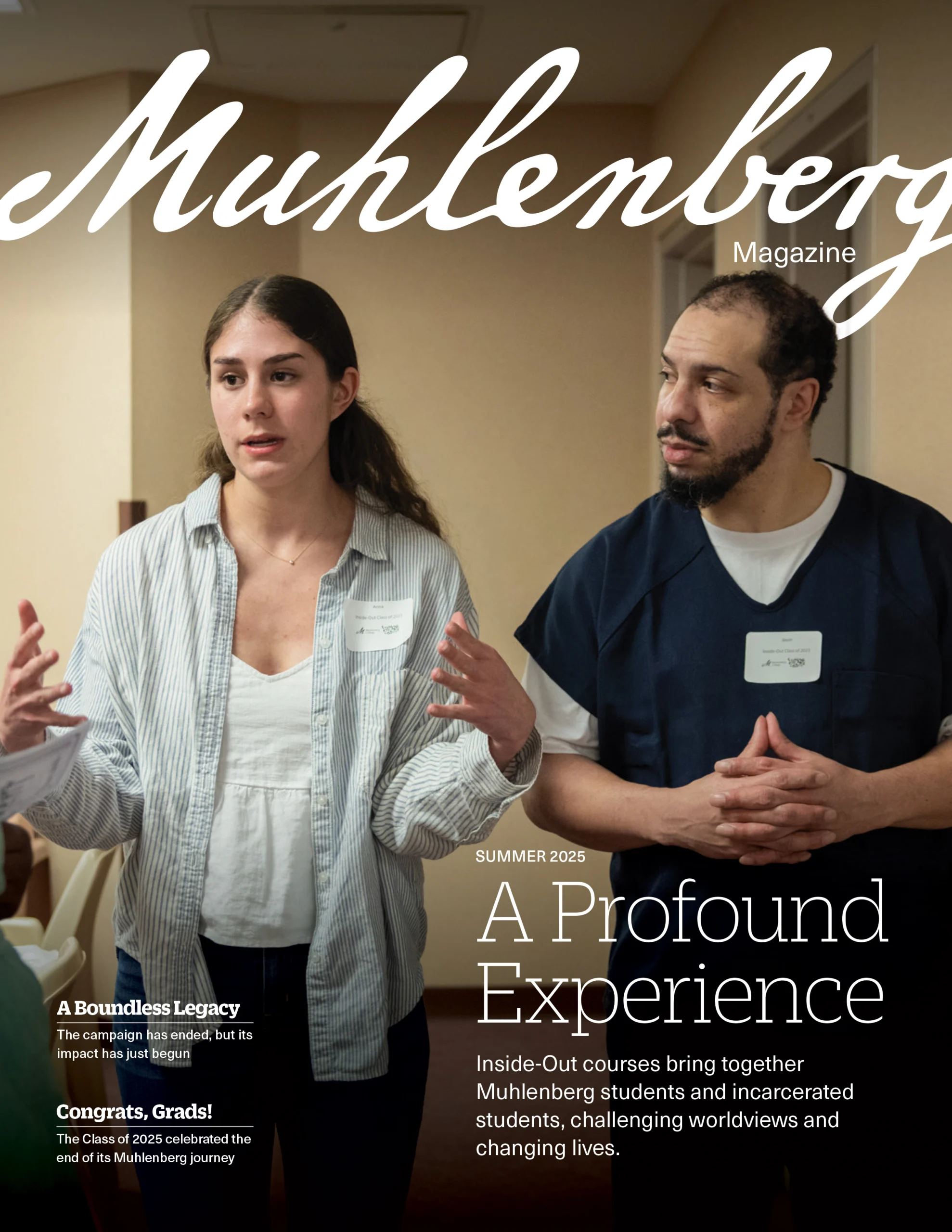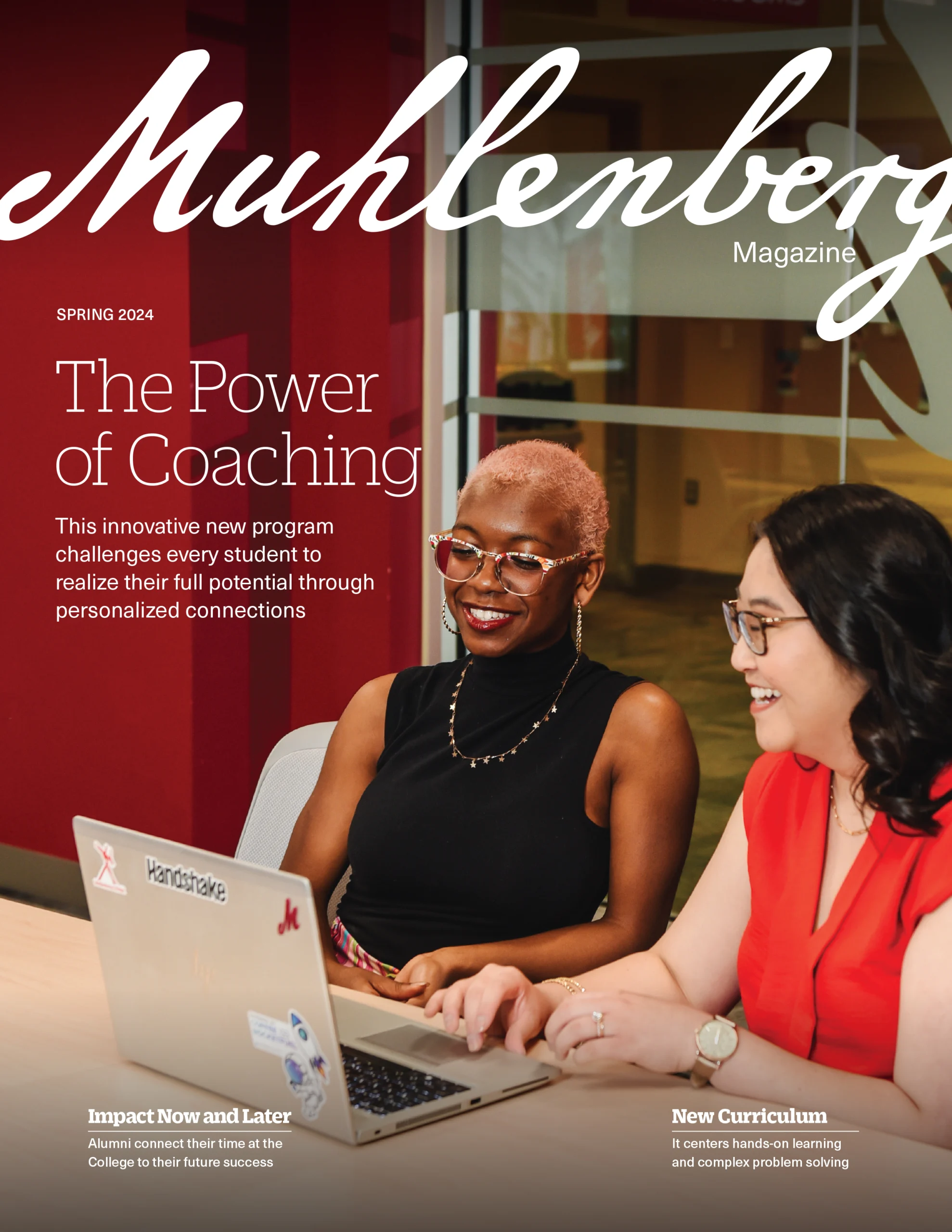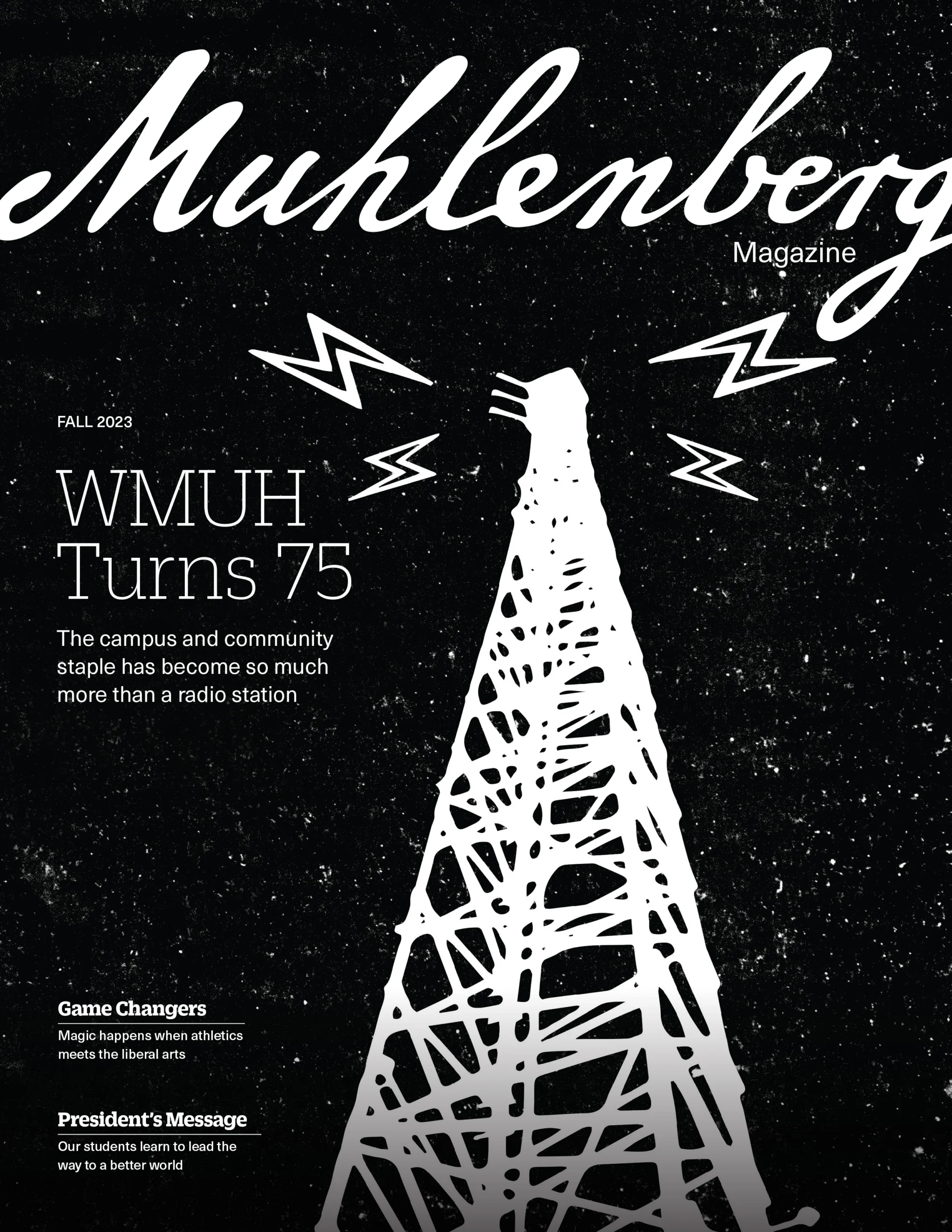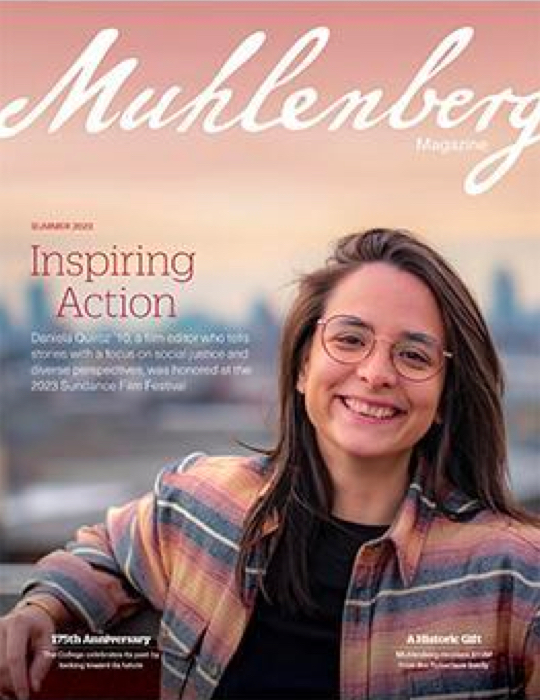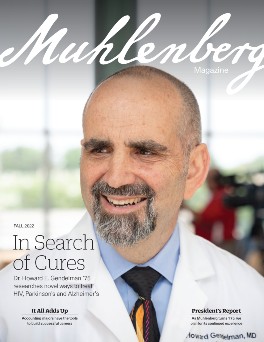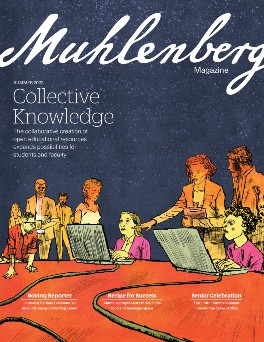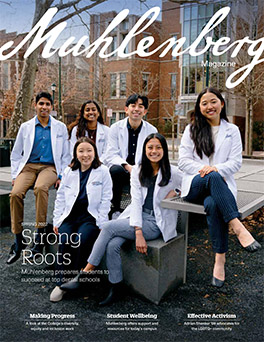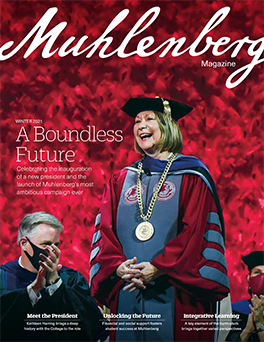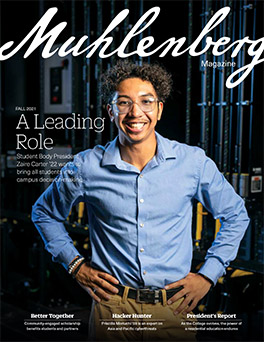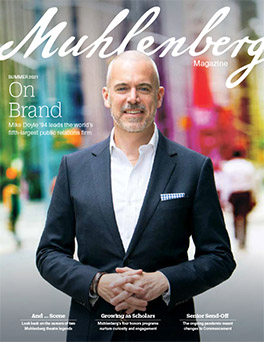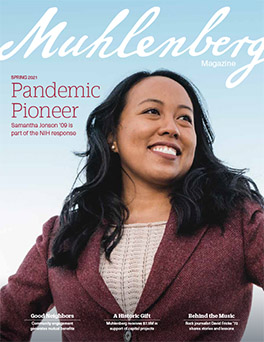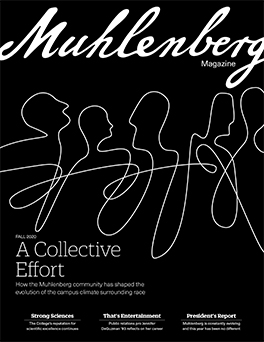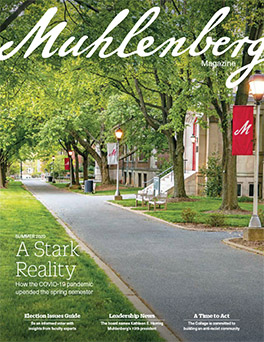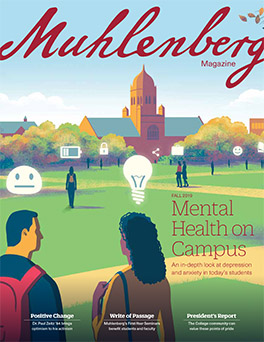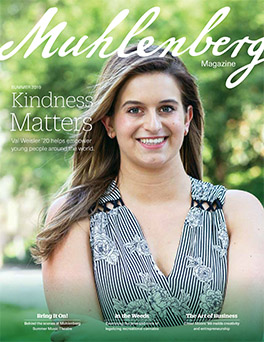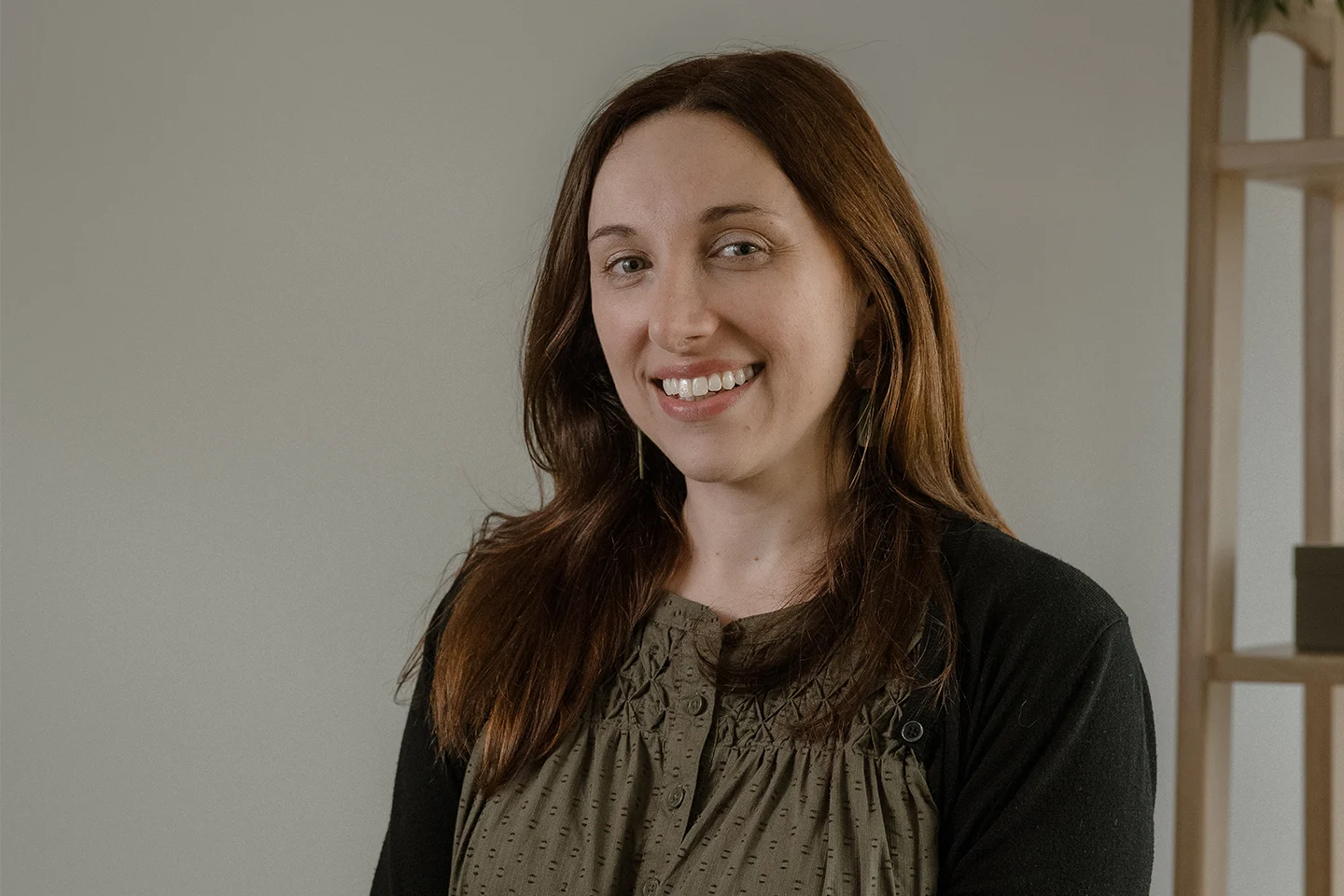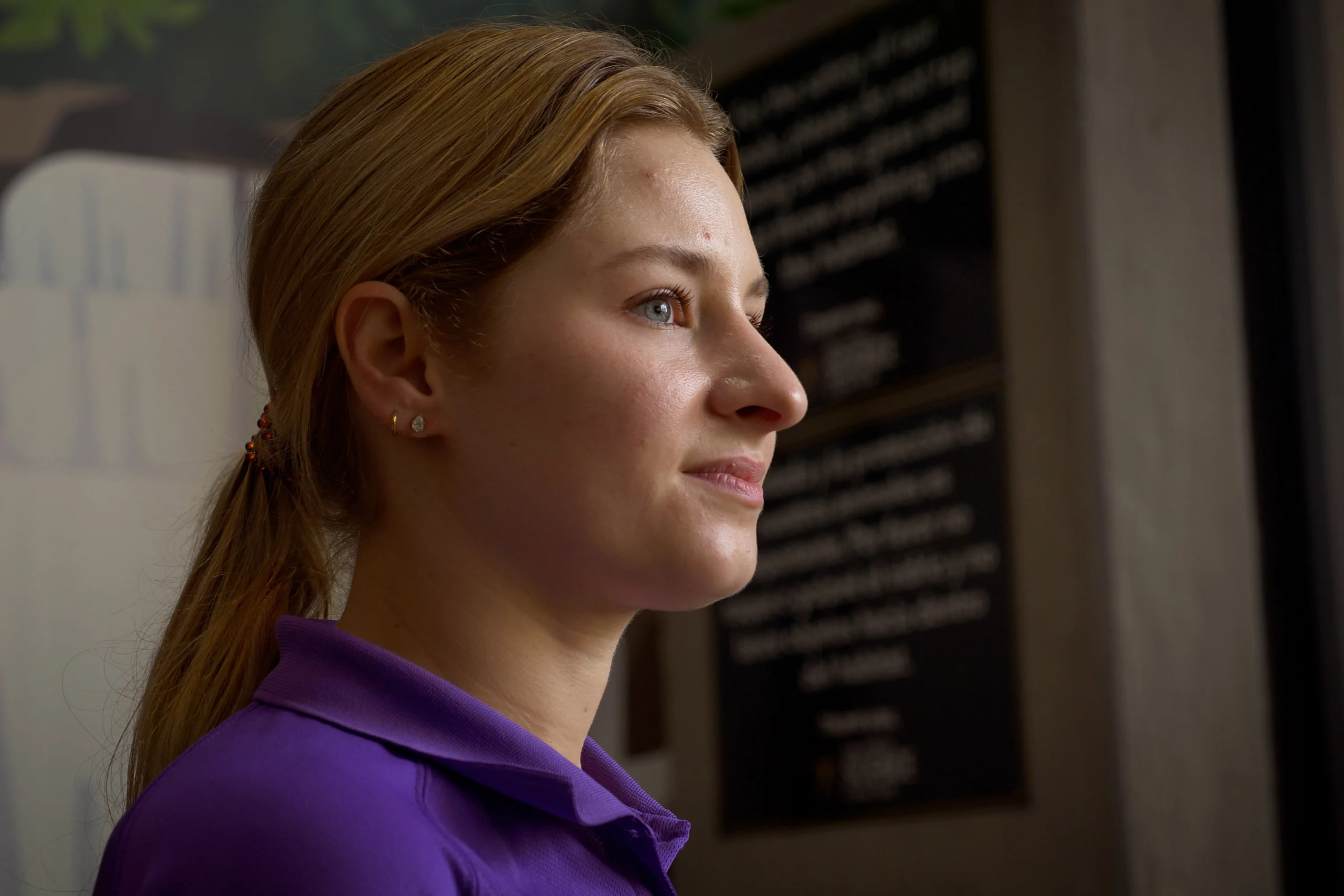
On Common Ground
Classes that bring together Muhlenberg students and incarcerated students —Inside-Out courses — have the power to challenge worldviews and change lives.
Near the end of the Inside-Out Closing Ceremony, held in the visiting room at the Lehigh County Jail on May 1, attendees stood and formed a large circle. A few dozen people — Muhlenberg students, faculty, and staff; incarcerated students; formerly incarcerated students; and representatives from the jail and the city of Allentown — had gathered to celebrate the work students had done in the two Inside-Out courses held during the spring semester. Each person in the circle had to say one word to describe what the ceremony had meant to them. The circle finished with Korey, an incarcerated student who had just completed his second Inside-Out course in the jail.
“Family,” Korey said.
The Inside-Out Prison Exchange Program, which was started by a formerly incarcerated man and a Temple University professor in 1995, is a pedagogical model meant to bring outside and inside students together for sustained educational conversations. Approximately 170 institutions in the United States have now conducted Inside-Out courses. Professor of Psychology Kate Richmond ’00 launched Muhlenberg’s Inside-Out program in 2018, and it has gained tremendous momentum post-pandemic. In 2022, the college received a $231,000 federal grant from the Department of Education to support and expand the program. In 2024, the program got nearly $1 million in additional funding as part of a $20 million federal grant awarded to the city of Allentown.
This spring, for the first time, two Inside-Out courses were held simultaneously — a new course on prison journalism taught inside the Lehigh County Jail and a new course on
re-entry after release taught on Muhlenberg’s campus. And in April, Muhlenberg hosted the first Lehigh Valley Inside-Out conference, which brought together about 130 people — from educators to judges to prison abolitionists and beyond — to discuss the role of colleges and universities in addressing and disrupting the systemic inequalities associated with the prison industrial complex.
“The success of the Inside-Out program at Muhlenberg is a powerful testament to our institutional values,” says President Kathleen Harring. “In these courses, Muhlenberg
students engage with the complex reality of incarceration firsthand. The community-building and hands-on learning that take place in these courses make a lasting impact
on both inside and outside students.”
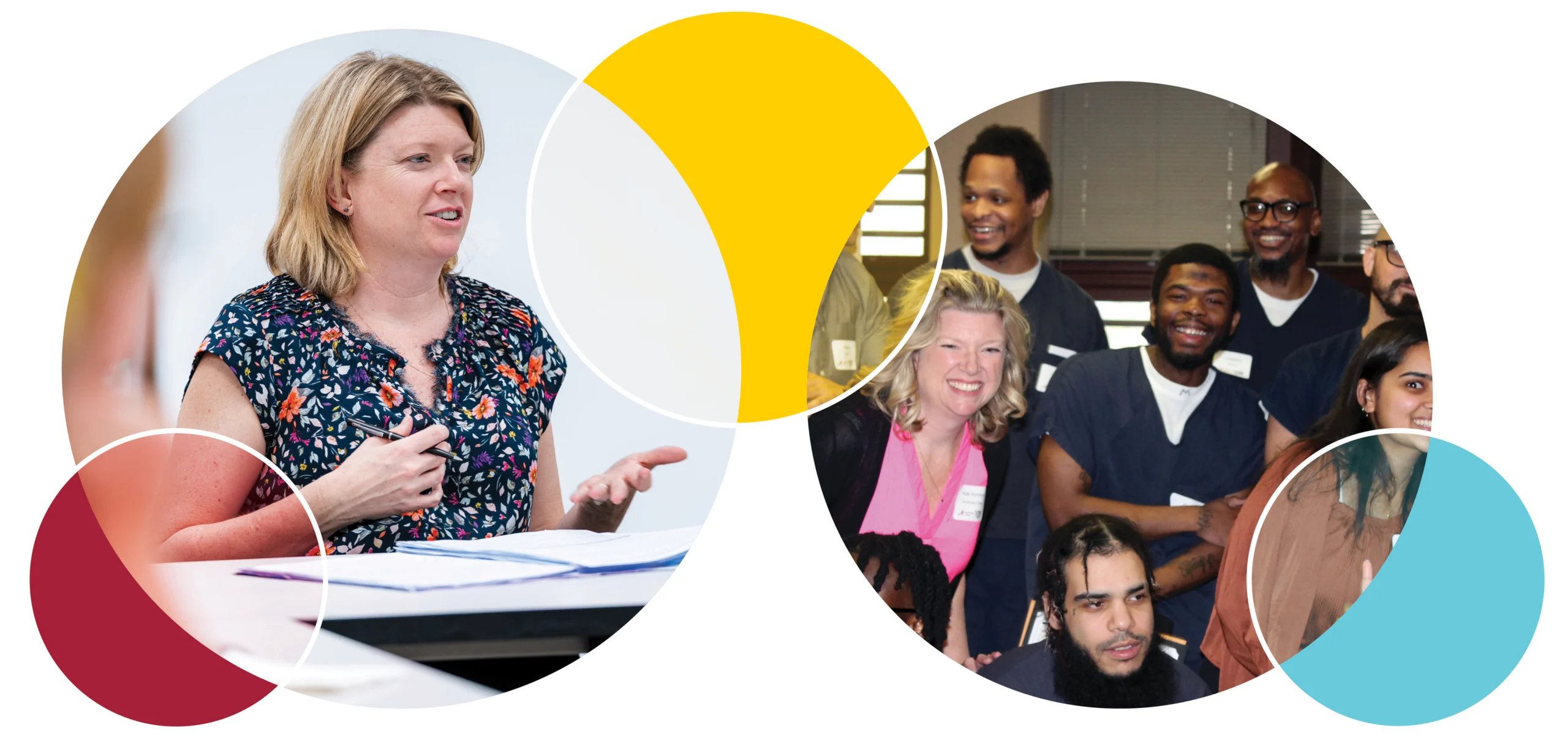
Left, Professor of Psychology Kate Richmond ’00 teaching this spring’s re-entry class (photo by Joe Romano ’23); right, Richmond with students at last spring’s closing ceremony at the Lehigh County Jail (photo by Amy Benninger G’25)
How It Began
Richmond, who began teaching at Muhlenberg in 2006, came to Inside-Out after experiencing a devastating personal loss. She knew from her work as a psychologist that one of the best ways to cope with trauma is to find a sense of meaning and purpose. Her sister was an undergraduate at Temple University taking its Inside-Out course, which was being held at the State Correctional Institution (SCI) at Graterford. She told Richmond, “You’ve got to meet these guys. They’re life-changing.”
So, Richmond went through the training to facilitate an Inside-Out course in 2014, and it was life-changing. She quickly realized that teaching in a prison could be the transformative experience she sought. She joined the Inside-Out Think Tank, for alumni of Inside-Out classes and educators teaching them, which met at SCI Graterford weekly. One of the men she met on the inside, Felix Rosado, mentored her as she prepared to teach her own course. It took time to coordinate with both Muhlenberg and the Lehigh County Department of Corrections, but in spring 2018, Richmond first taught her course at the Lehigh County Corrections Center. The class dealt with incarceration in the United States.
The logistical challenges of teaching in a jail are significant. For example, Muhlenberg students need transportation, and due to lack of technological access on the inside, all students rely on a binder of printed, pre-approved readings, a legal pad, and a pen to complete assignments. Because of this, Richmond sought co-facilitation and initially worked with Jenna Azar, now an adjunct professor in the Division of Graduate and Continuing Education, whose expertise in criminal justice and community engagement was integral in the course’s initial success. In 2019, Richmond asked Community Engagement Librarian and Head of Library DEI Initiatives Jess Denke to co-facilitate the course, and the two have taught together four times now (not counting the semester the course was cut short due to the pandemic).
“One of the core benefits of the Inside-Out program is that it facilitates dialogue and allows students from a variety of backgrounds … to exchange thoughts and ideas on issues surrounding social justice and incarceration,” says Lehigh County Director of Corrections Janine Donate. “Kate and Jess are fully invested and dedicated to this program, thereby ensuring its success. They are passionate and strongly believe in what they do.”
So far, 105 Muhlenberg students and 87 incarcerated students have taken Inside-Out courses through Muhlenberg. The Lehigh County Corrections Center closed during the pandemic, so the inside courses are now held at the Lehigh County Jail in downtown Allentown. They take place once a week for three hours in a windowless room without a clock, with no food or bathroom breaks permitted. The courses are held during the spring semester, but Richmond and Denke also facilitate a monthly book club in the jail, which keeps their presence there more consistent. A group of Muhlenberg students and formerly incarcerated students who’ve taken the course are part of the Inside-Out research team, which works
to assess whether the courses are meeting their learning goals and how they might be improved.

“In these courses, Muhlenberg students engage with the complex reality of incarceration firsthand. The community-building and hands-on learning that take place in these courses make a lasting impact on both inside and outside students.”
— President Kathleen Harring
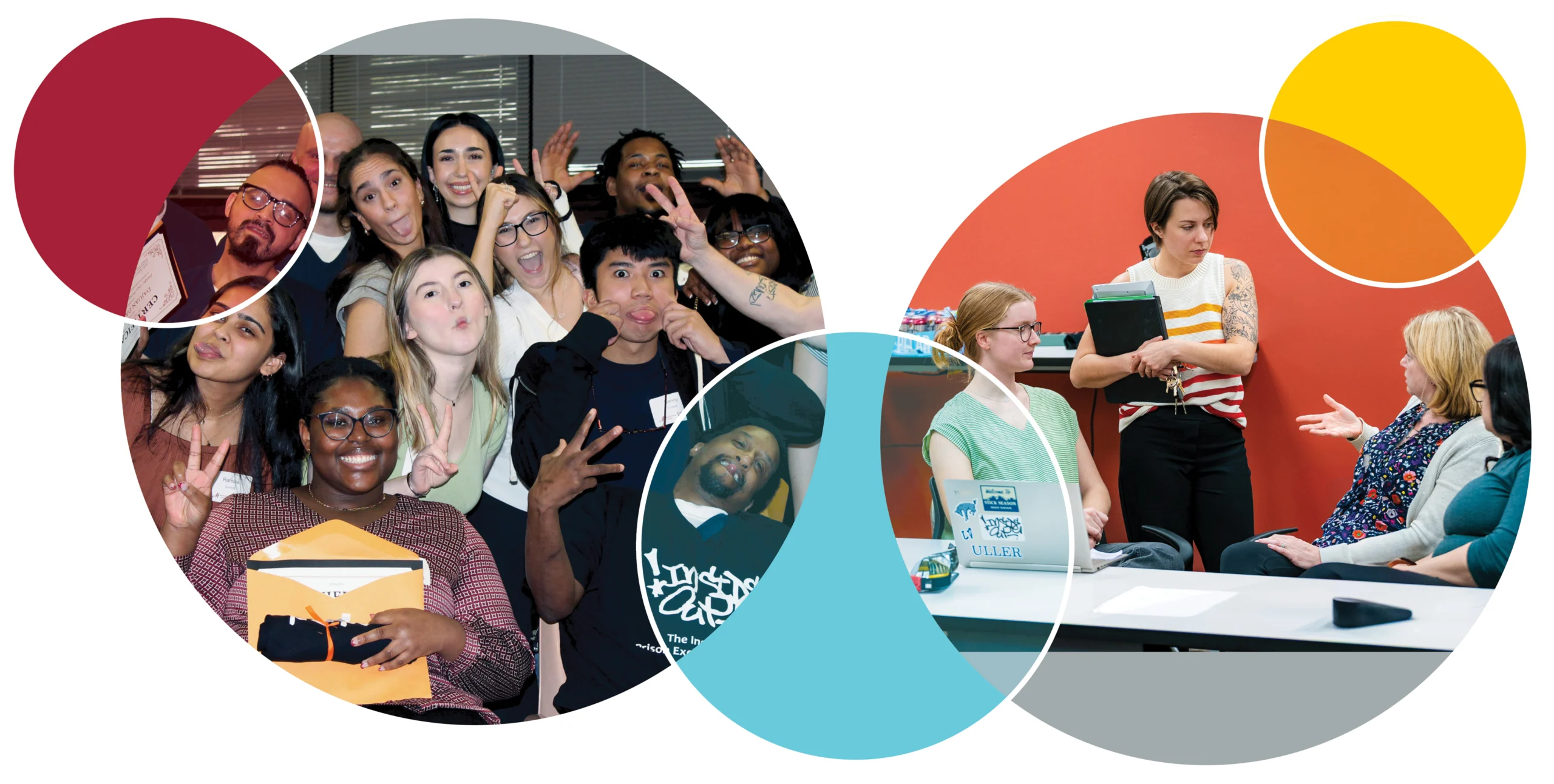

“I’ve always studied mass
— Associate Professor of Political Science Ross Dardani
incarceration and the carceral state from a more theoretical perspective. … I think the most eye-opening thing for me has been hearing directly from people who are experiencing it.”
Exponential Growth
One important way the program has changed since its launch was enabled by the 2022 grant. Starting in spring 2024, Muhlenberg was able to offer incarcerated and formerly incarcerated students college credit for completing an Inside-Out course.
The 2022 grant also allowed seven more faculty to be trained to facilitate Inside-Out courses. This allowed Muhlenberg to offer two classes simultaneously for the first time this spring. The instructors of the prison journalism course, Senior Lecturer of Media and Communication Sara Vigneri and Associate Professor of Political Science Ross Dardani, were among those trained in the summer of 2023.
Their course covered the history of journalism in prisons; how to research, report, and write an article; and the challenges facing incarcerated journalists. For example, the students’ final group project was a small newspaper with articles that brought together the incarcerated students’ experiences with data demonstrating how those experiences fit into larger trends. The work will not be distributed beyond the confines of class because many of the inside students are awaiting trial, and for now, it’s too legally risky for their stories to be published. (This reflects the difference between a prison, where the population has already been convicted, and a jail, where at least some of the population have not yet gone to trial.)
“I’ve always studied mass incarceration and the carceral state from a more theoretical perspective, how and why the system is designed to fail,” Dardani says. “I think the most eye-opening thing for me has been hearing directly from people who are experiencing it.”
Vigneri’s primary takeaway relates more to her expertise in information access. Many of the incarcerated students, even when not incarcerated, operated in an information environment replete with conspiracy theories and other misinformation. “When you’ve been dealt some bad hands and you’re trying to navigate yourself out of it, and you don’t understand how
to understand what’s going on because you lack that skill to navigate the world of information, I’m seeing pretty harshly what that does to people,” she says. “How to find good quality information and how to know what’s good information and what’s not … it’s not shocking to me that journalism in prisons is so helpful because it teaches you exactly that kind of stuff.”
Also this spring, Richmond and Denke launched a class on re-entry on Muhlenberg’s campus. It included a mix of Muhlenberg students and formerly incarcerated students and was the first course of its kind offered by any of the Inside-Out higher education partners. The course was a way to formalize the Lehigh Valley Inside-Out Think Tank that began meeting in 2018 but was difficult to sustain in busier times.
It also met a need: “There were [formerly incarcerated] people who were asking us for support regularly,” Denke says. “I am not equipped to answer all of their questions. This class is also leveling up my understanding of the way re-entry works in the community and the resources that are available.”
The course regularly hosted guests from the community doing re-entry work. For example, three team members from Valley Health Partners Street Medicine came to discuss the services they provide to people experiencing homelessness in the area. (Formerly incarcerated people are about 10 times more likely to experience homelessness than people who
haven’t been incarcerated, per a report from the Prison Policy Initiative.)
A guest-centric course was only possible because of the network Richmond and Denke have built over the years, and the first Lehigh Valley Inside-Out conference, held in April, showcased the power of that network. The conference, “Response and Repair: Higher Education, Corrections, and Solidarity,” took up a full day in Moyer Hall and was
also funded by the 2022 grant.
While the day included a keynote speech from Jarrett Harper, a formerly incarcerated man working to reform the foster care system and ban life sentences for children, the bulk of the conference was interactive. The goal was to bring together people with vastly different experiences with the criminal justice system to bridge some of the polarization. Breakout sessions allowed groups of participants to get to know each other. Panel discussions brought together key voices to discuss the state of higher education in jails and what the future might hold at the intersection of education and incarceration.
The second panel included Rosado, Richmond’s mentor from SCI Graterford. He describes himself as a “death penalty escapee” — he had been sentenced to life in prison (or, “death by incarceration”) for a crime he committed at age 18. He joined the SCI Graterford Inside-Out Think Tank in 2007 after taking an Inside-Out course and remained active with the group until he received clemency in 2022. On the panel, he described the impact education had on his own journey: “Once you learn one thing, you might mess around and learn something else.”
“People came up to me and said they can’t believe how fast [the conference] went. It just flew by,” Richmond says. “We worked hard to elevate the voices of people who are directly impacted [by incarceration]. And it was nice to see in Miller Forum that kind of ethnic, racial, age, and economic diversity, which is a goal that Inside-Out tries to achieve: to get everyone in the room.”
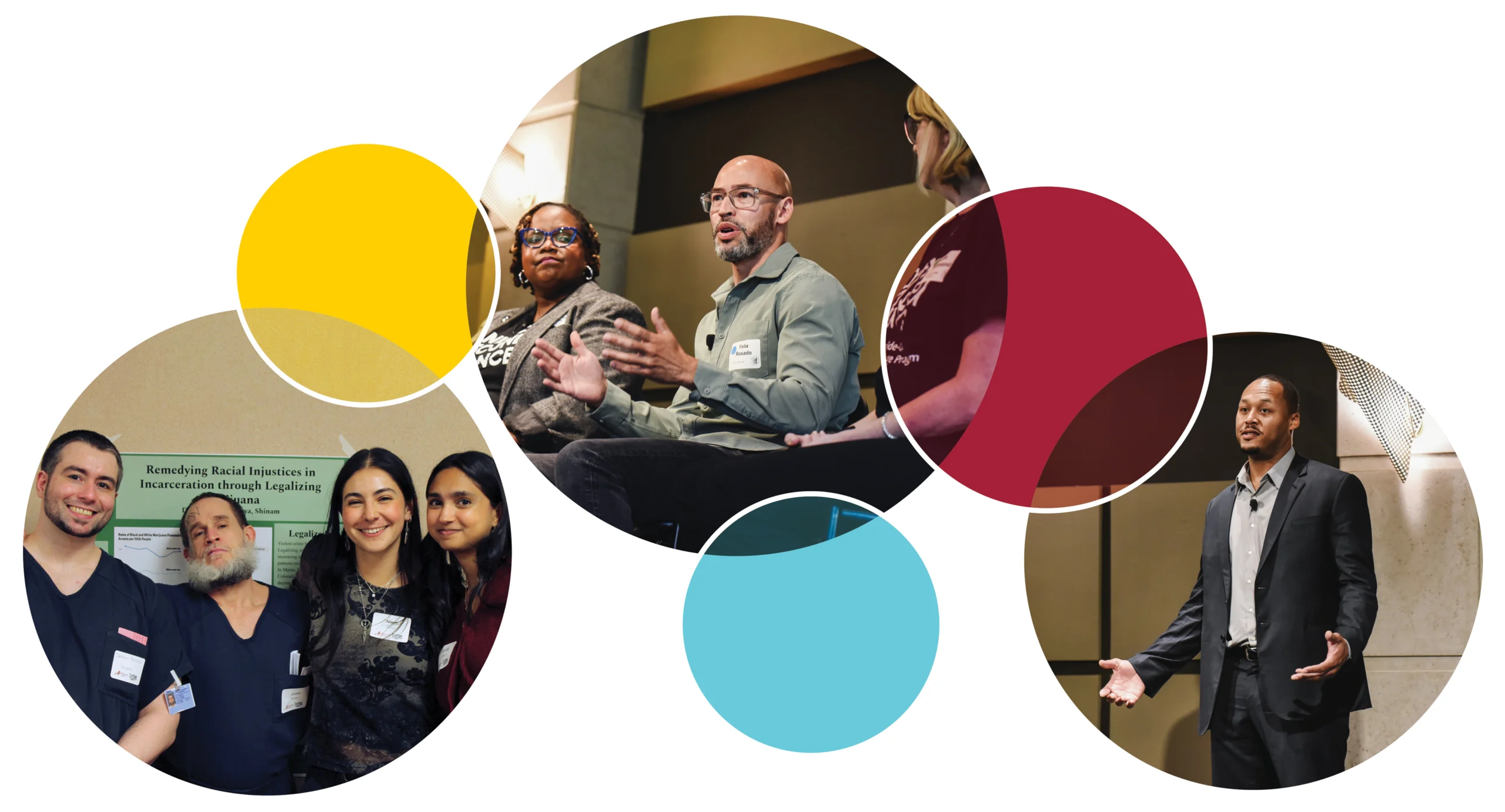
Stories of Impact
That experience of being in the room with people who have very different lived experiences from your own can be transformational for both incarcerated students and Muhlenberg students.
“[Taking an Inside-Out course] was the most meaningful experience I’ve had in college,” says Shinam Hussain ’25, a political science and sociology double major. “It provided me with a lens I wouldn’t get through just reading studies or interviews. That firsthand experience of going into the jail and talking to incarcerated individuals about their experiences and their lives and really seeing how similar we all are, that isn’t something that I would’ve gotten any other way.”
Hussain, who took the incarceration course in spring 2024 and then joined the research team, says incarceration research and reform had been her primary passion throughout college, so the course aligned perfectly with her interests. This fall, she will begin a master’s in political science at Lehigh University with the goal of ultimately landing at a nonprofit that focuses on re-entry.
This kind of prior interest is not a prerequisite, for Muhlenberg students or for incarcerated students. “I never thought about mass incarceration. I spent some juvenile time in lockups, but for the most part I wasn’t involved in the system for many years,” says Adam Petyo, who took the spring 2024 course while incarcerated, joined the research team upon release, and completed this spring’s re-entry course on campus. “Then you go sit in jail for a year and you realize how broken the system is. It’s a revolving door. I got involved to try to help people stop that revolving door, and the best way to do that is by building support systems, community, and education programs.”
Sar Gregori-Kass ’18, who took the first Inside-Out course at Muhlenberg as a senior, found the experience to be literally life-changing. Gregori-Kass, a neuroscience major and women’s and gender studies minor at Muhlenberg, is now pursuing a master’s in social work at Quinnipiac University. There, Gregori-Kass works with Professor of Social Work Amber Kelly and the nonprofits Full Citizens Coalition and ACLU Smart Justice on prison abolitionist organizing and activism.
“Inside-Out will always be a course and moment in time that shaped my life. I vividly remember going to the jail every week, my pals and I playing our carpool playlist, knowing we were about to do some very hard work alongside our inside classmates, who did not have the privilege of getting up and leaving when class was over,” Gregori-Kass says. “I hope in
my lifetime to see the total deconstruction of our carceral systems, and Inside-Out was where this passion went from nascent to integral to my identity.”
The Inside-Out program has also shaped the system itself in small but meaningful ways. Korey, the incarcerated student who took the incarceration course in spring 2024 and the prison journalism course in spring 2025, returned for a second class “because of the relationships and the way that people come together.” One of the groups in the spring 2024 cohort did a final project on mental health concerns at the Lehigh County Jail and noted that the facility lacked a private space for incarcerated men to meet with medical professionals, including mental health professionals. Since then, the jail has designated a specific room that can be used for that purpose.
The power of this program lies in giving a voice to those who feel voiceless: “That’s exactly what kept me around in the beginning — being seen, being heard, and feeling like your voice does matter, because when you’re sitting in jail, you don’t feel like that at all,” Petyo says. “Walking into a classroom where the students and Kate and Jess made you feel seen and heard and would have a conversation with you and treat you like
a normal person, that went a long way.”

“That firsthand experience of going into the jail and talking to incarcerated individuals about their experiences and their lives and really seeing how similar we all are, that isn’t something that I would’ve gotten any other way.”
— Shinam Hussain ’25, political science and sociology double major
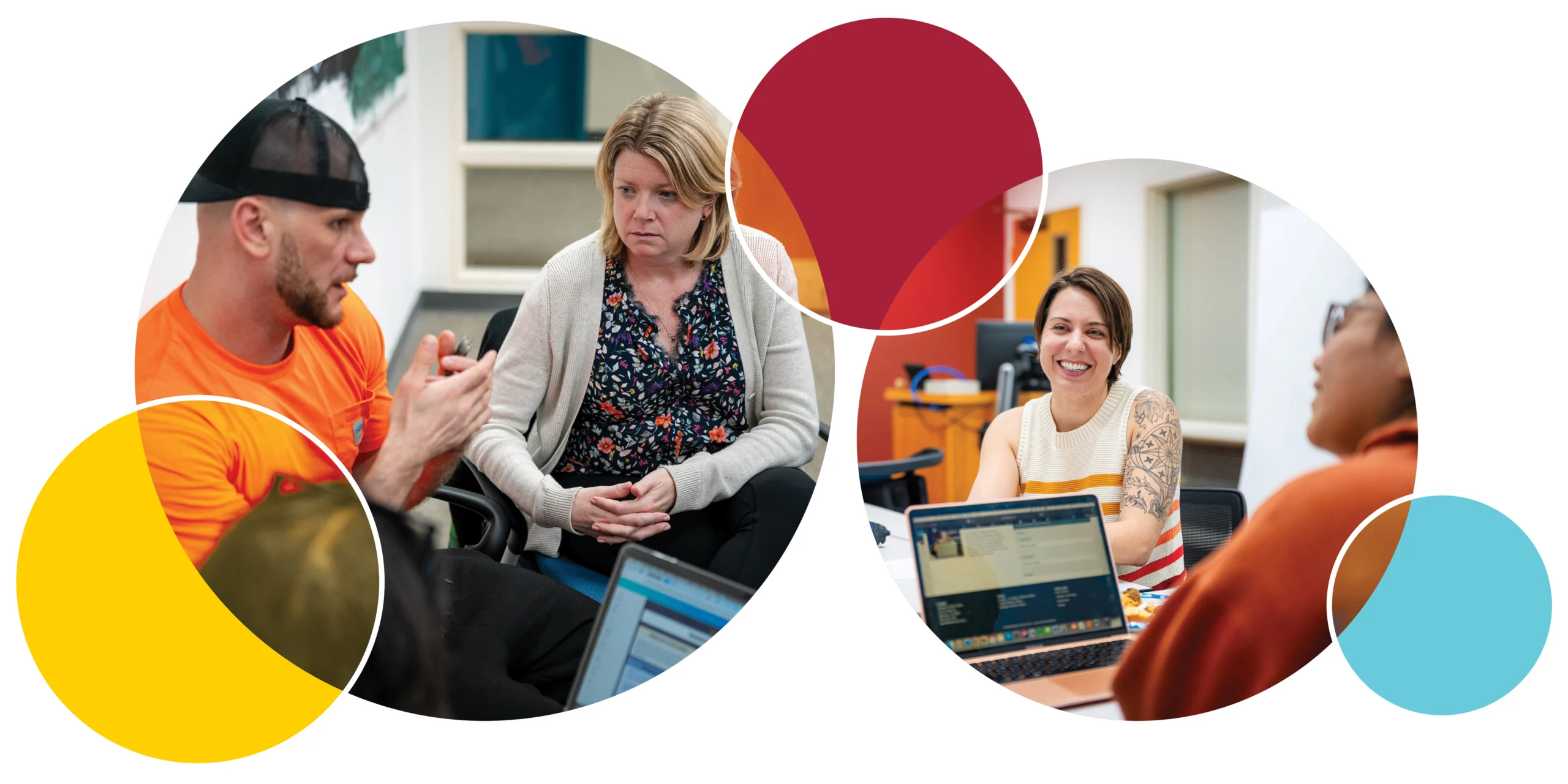

“This is the antidote to trauma. When people feel alive, when they feel engaged, when they feel connected, when they feel human, that’s how healing happens … When you’re in the jail, that is so necessary. But the truth is, it’s necessary at Muhlenberg, too.”
— Professor of Psychology Kate Richmond ’00
Plans to Expand
The nearly $1 million in grant funding the Inside-Out program is receiving from the city of Allentown is allowing the program to grow its power and reach. The funding is part of a $20 million federal grant awarded to the city’s Recompete Plan.
“[The city] identified 15 blocks in Allentown that have been disproportionately disenfranchised in a whole host of ways — transportation, childcare, education, workforce development,” Richmond says. “Lo and behold, many of the people who are from those streets are actually sitting in the [Lehigh County] Jail. You can’t really do workforce development if you don’t reach those people.”
Some of this funding will be used to train 11 additional faculty and staff to facilitate Inside-Out courses. Richmond and Denke have found the faculty-staff combination of facilitators to be ideal. It’s exceedingly difficult to align the course schedules of two faculty members, which is why it took two years for anyone from the 2023 cohort to teach in the jail. And, Richmond says, “There is a real assumption that staff is not involved in the knowledge production or education that happens here,
and that couldn’t be further from the truth. Anyone who works at Muhlenberg, we all have the same mission and goal, which is to educate and to uphold the liberal arts. I don’t care what your role is, we’re all doing that.”
One of the staff who will be trained this summer is Christina Campbell, an administrative assistant and conference coordinator whose role exclusively supports the Inside-Out program. She began this role in spring 2024 and has been a critical player in handling the logistics inherent in running two new classes, liaising with the jail, and putting on the conference.
One of the groups in the re-entry class did their final project on the effectiveness of the inaugural conference. They analyzed assessment forms attendees filled out to determine how well the conference met its goals — including building bridges across differences and strengthening community knowledge and skills — and respondents agreed or strongly agreed that the conference achieved them all. The plan is to hold such a conference on campus every other year to continue bringing constituents together.
The near-term goal is to continue holding two Inside-Out classes each spring. Richmond and Denke intend to teach their re-entry class again, possibly moving it to a re-entry house to make it more accessible to formerly incarcerated students. (Only six were able to consistently attend this spring’s course on campus.) However, Richmond says she is eager to resume teaching in the jail.
“This is the antidote to trauma. When people feel alive, when they feel engaged, when they feel connected, when they feel human, that’s how healing happens, and that’s what I needed when I walked into Graterford that first time,” she says. “When you’re in the jail, that is so necessary.
But the truth is, it’s necessary at Muhlenberg, too.”

